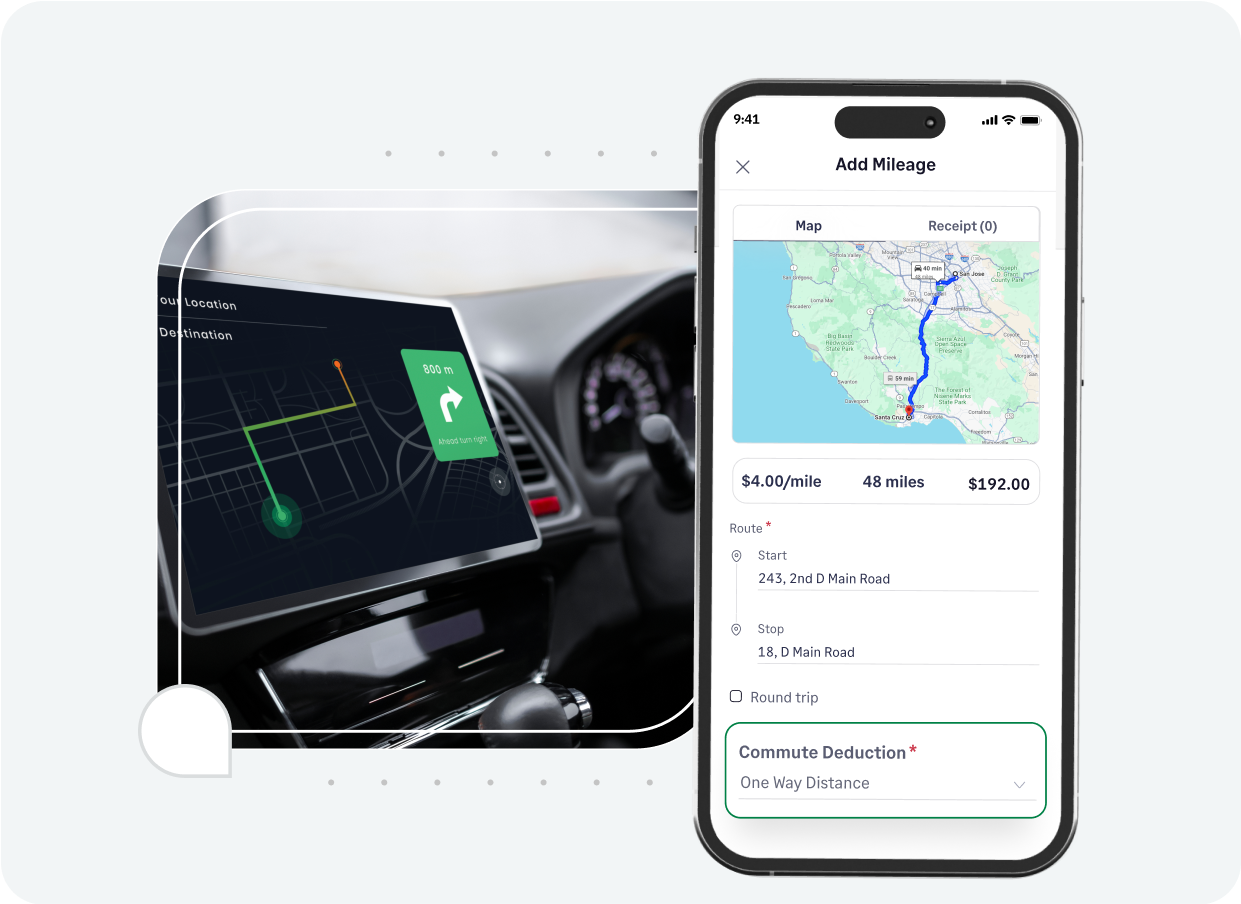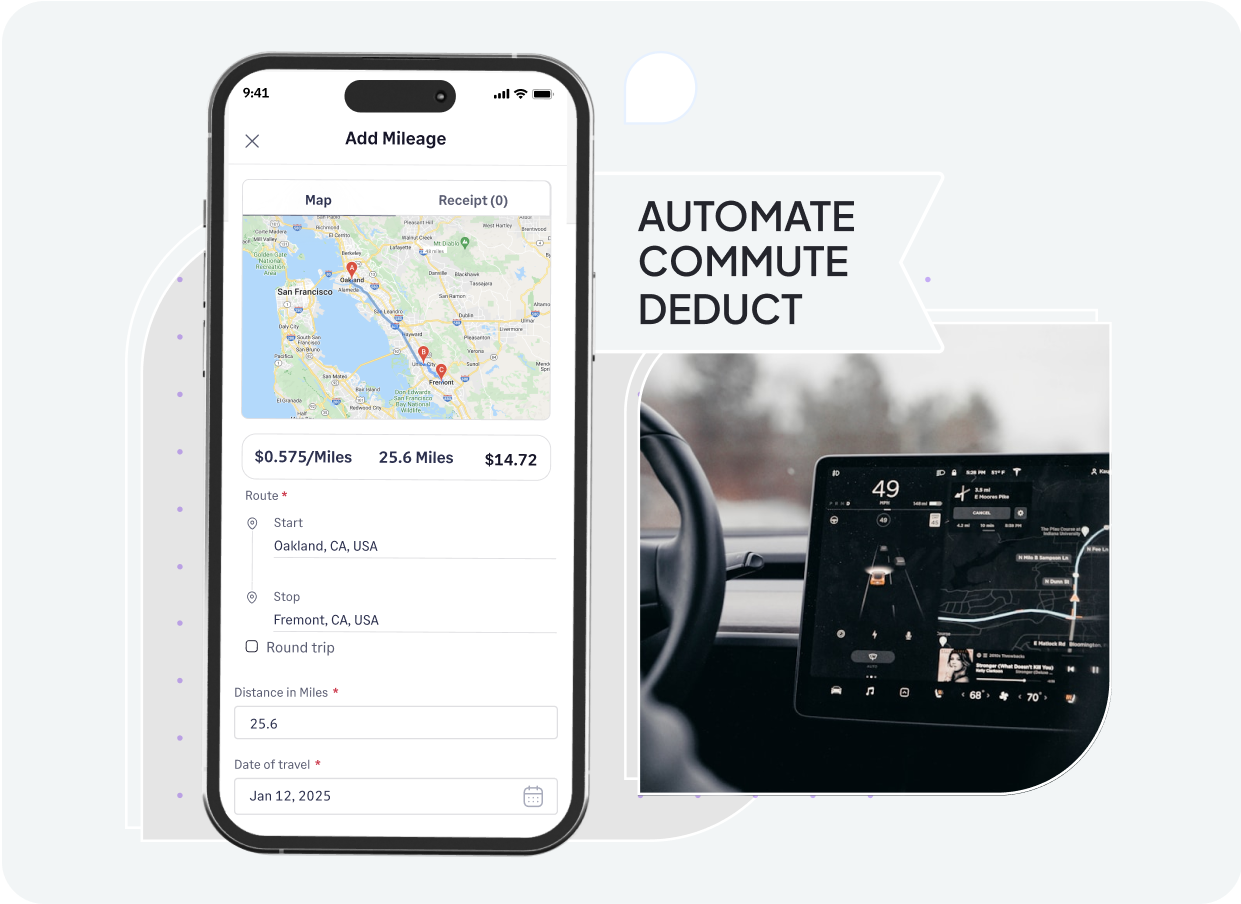For businesses operating in Alabama, where state law defers to federal standards on minimum wage, understanding the nuances of mileage reimbursement is particularly important.
Accurately compensating employees for the use of their personal vehicles for work not only ensures fairness but also keeps companies aligned with overarching federal guidelines.
The primary benchmark for these calculations is typically the Internal Revenue Service (IRS) standard mileage rate. For 2025, the IRS has announced this rate for business travel at 70 cents per mile, an increase from the 67 cents per mile rate in 2024.
While Alabama does not have a state-specific law compelling private sector employers to adopt this IRS rate for every situation, its widespread acceptance offers significant benefits:
- It serves as a nationally recognized and reasonable measure for reimbursement.
- Using an accountable plan with reimbursements at or below this federal rate generally means the money is non-taxable for the employee and a deductible expense for the employer.
As of January 1, 2025, the key IRS standard mileage rates are:
- 70 cents per mile for business use of a vehicle.
- 21 cents per mile for medical or moving purposes (note: the deduction for moving expenses is currently limited to active-duty members of the U.S. Armed Forces).
- 14 cents per mile driven in service of charitable organizations.
Other relevant rates in Alabama include:
- Alabama State Employee Rate: The State of Alabama establishes a mileage reimbursement rate for its employees using personal vehicles on official state business. For the 2025 calendar year, this rate is 70 cents per mile.
- Workers' Compensation Medical Travel: The Alabama Department of Labor, Workers' Compensation Division, mandates the mileage reimbursement rate for injured employees traveling to receive authorized medical care. For travel on or after January 1, 2025, this rate is 70 cents per mile.
For historical context, here are the IRS standard business mileage rates from recent years:
Alabama Mileage Reimbursement Calculator
Get a clear estimate of your mileage reimbursement with our straightforward Alabama Mileage Reimbursement Calculator.
How to Use the Calculator:
- Select the correct tax year: Choose the year for which you're calculating reimbursement (e.g., 2025, 2024), as the applicable IRS rates can change.
- Input your business miles: Enter the total number of miles driven for business purposes using your personal vehicle.
- Calculate your reimbursement: The calculator will automatically apply the official IRS standard mileage rate for the selected year and display your estimated reimbursement amount.
This tool is designed to provide a quick and accurate figure, helpful for both employees submitting expenses and businesses processing them.
Calculate
Results
Some Important Alabama Mileage Reimbursement Laws
While Alabama does not have a specific statute mandating mileage reimbursement for all private-sector employees, certain federal and state laws create important obligations for employers:
1. Federal Minimum Wage (FLSA) Compliance
Alabama adheres to the federal minimum wage of $7.25 per hour, as it does not have a separate state minimum wage law.
This is a critical factor: employers must ensure that any unreimbursed, necessary business expenses (like mileage) do not effectively reduce an employee's earnings below this federal floor for the hours they've worked.
Doing so would risk a violation of the Fair Labor Standards Act.
2. Workers' Compensation Act
Alabama law provides for employees who sustain work-related injuries. This includes the right to reimbursement for necessary travel to obtain authorized medical treatment, at a rate specified by the Alabama Department of Labor, Workers' Compensation Division.
3. Employer Discretion and Policy
Given the absence of a general state mandate for private employers, the specific terms of mileage reimbursement are often determined by company policy.
Establishing a clear, fair, and consistently applied policy is a best practice.
4. Public Sector Regulations
The State of Alabama does have defined regulations for how its own employees are reimbursed for official travel, including mileage, ensuring accountability for public funds.
Alabama Mileage Reimbursement Law vs. Federal Law
Navigating mileage reimbursement in Alabama means understanding how federal law, particularly the FLSA, sets the primary standards:
Federal Law (FLSA)
This is the cornerstone in Alabama. The FLSA's requirement that employees receive at least the federal minimum wage ($7.25 per hour) "free and clear" of work-related expenses is paramount.
If unreimbursed mileage expenses cause an employee's pay to dip below this level, the employer is responsible for making up the difference.
Alabama State Law
- Alabama law defers to the federal minimum wage standard.
- It has specific mandates for mileage reimbursement related to workers' compensation medical travel, with rates set by the state's Department of Labor.
- State government employee travel also has its own set rates.
IRS Regulations
The IRS standard mileage rates (e.g., 70 cents per mile for business use in 2025) are vital for tax purposes. Adhering to these rates within an accountable reimbursement plan generally means the reimbursements are non-taxable to employees and deductible for the business.
While not a legal mandate for reimbursement itself, this makes IRS rates a practical choice for many Alabama businesses.
In Alabama, the FLSA establishes the critical wage floor. State regulations address specific scenarios like workers' comp and public employee travel. The IRS rates then offer a widely adopted, tax-advantaged framework for determining reimbursement amounts.
How Sage Expense Management (formerly Fyle) Can Automate Mileage Tracking
Switch from manual mileage logging to a smarter, automated approach with Sage Expense Management. For Alabama businesses, this means simplified expense management, better accuracy, and more time for core operations.
- Automated distance capture with GPS: Ensures every business mile is accurately logged via Google Maps, minimizing manual entry and potential errors.
- Intelligent rate application: Whether you use IRS standards, specific state rates, or custom company figures, we apply the correct rate to each trip without hassle.
- Clear separation of commute miles: Helps your team easily define and exclude personal commute travel, ensuring compliant and fair reimbursements.
- Effortless setup for recurring travel: For employees with regular routes, we allow for one-time entry, then automates future mileage claims, boosting efficiency.
- Proactive policy guardrails: Integrate your company's expense rules directly to automatically check for compliance and flag any exceptions before they become issues.
- Streamlined accounting workflows: Sage Expense Management connects with major accounting systems (QuickBooks, Xero, NetSuite, etc.), pushing approved mileage data directly and eliminating manual reconciliation.
- Faster payments with direct deposit (US only): Approved mileage reimbursements can be sent straight to employee bank accounts via ACH, ensuring timely compensation.
Sage Expense Management empowers Alabama companies to manage mileage reimbursements with greater precision, less administrative burden, and full confidence in their compliance.


































